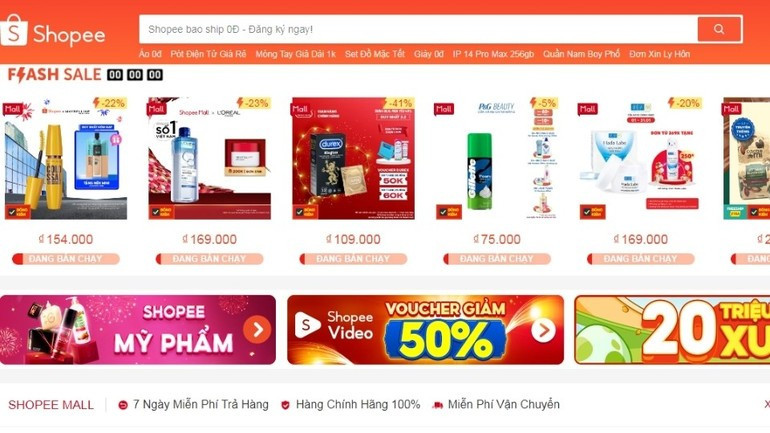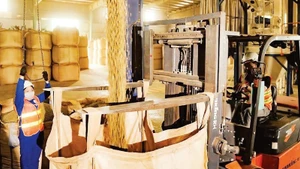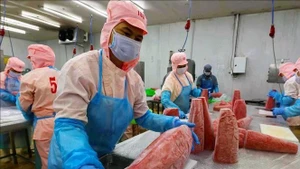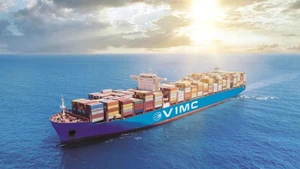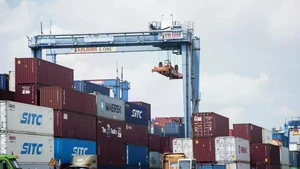E-commerce and the challenge of sustainable development
According to the “Online Export Opportunities in Viet Nam” report by the international research organisation Access Partnership, Viet Nam’s Business-to-Consumer (B2C) e-commerce export value is expected to reach 145.2 trillion VND (around 5.8 billion USD) by 2028, with micro, small, and medium-sized enterprises expected to contribute 25% of this total.
Data from Amazon alone shows that over the past five years, the volume of Vietnamese products exported via its platform has surged by 300%, opening unprecedented international opportunities for Vietnamese businesses. At the same time, Facebook, TikTok, and Instagram have become popular shopping channels, providing strong support in bringing products and services closer to consumers. In parallel, modern payment methods such as e-wallets, online transfers, and QR codes are increasingly popular thanks to their convenience and safety.
The support of AI and Big Data has also created new breakthroughs for the industry. These tools help e-commerce enterprises analyse consumer behaviour, predict trends, and personalise experiences, thereby improving business efficiency and maintaining customer engagement. In addition, the boom of smartphones and mobile apps has driven mobile commerce to become an inevitable trend, turning the experience of “shopping anytime, anywhere” into a reality.
Vu Ba Phu, Director of the Viet Nam Trade Promotion Agency (Ministry of Industry and Trade), stated: “Vietnamese e-commerce has grown remarkably in recent years, particularly in export promotion. E-commerce has opened an important channel for small and medium-sized enterprises, even those with limited financial capacity, to directly access consumers in demanding markets such as the EU, the US, and Japan.”
However, alongside opportunities, Vietnamese e-commerce also faces major challenges related to sustainable development. A 2024 survey by the Viet Nam E-Commerce Association found that exporting goods worth 1 billion USD to the market would leave behind 7,600 tonnes of plastic. Meanwhile, online fast-food delivery services using polystyrene boxes and plastic bags could generate up to 18,600 tonnes of plastic waste. Forcasts show that by 2030, if e-commerce reaches 100 billion USD, it will leave behind more than 800,000 tonnes of plastic waste, requiring enormous resources to tackle the problem.
Hoang Ninh, Head of the Digital Government Division (Department of E-Commerce and Digital Economy, Ministry of Industry and Trade), shared: “E-commerce is a pioneering field in the digital economy. Its development must go hand in hand with sustainability, optimising the entire process from production and business to consumption experiences, balancing economic growth, social equity and environmental protection. Businesses and consumers will be the core drivers, while the State will play a role in management, infrastructure building, and creating enabling conditions.”
According to Ninh, green e-commerce development will be closely tied to the National Digital Transformation Programme, the Strategy for Digital Economy–Digital Society Development, and projects of the Ministry of Industry and Trade. In the coming period, it is necessary to establish a national set of criteria for sustainable e-commerce.
“Our goal is to have 60% of e-commerce businesses comply with sustainability criteria, while reducing consumer rights violations to only 5%–10% of total websites,” Hoang Ninh stated.
In this regard, the State needs to soon develop policies encouraging businesses and consumers to switch to green products and services, reducing plastic waste through promotional programmes and specific support policies. At the same time, it should strengthen supervision and evaluate the performance of e-commerce enterprises.
Vietnamese businesses bring green consumption trends to e-commerce platforms
Within the current of sustainable production, many Vietnamese enterprises have pioneered in putting green products on e-commerce platforms. One Vietnamese business has begun turning eggshell by-products into organic calcium powder and extracting alkaline water from citrus peels.
Nguyen Phuong Mai, Head of Communications and Marketing at DDA Investment Company, shared: “We implement a model of collecting by-products to create valuable organic products, reducing waste discharged into the environment while contributing to community health. At the same time, DDA cooperates with e-commerce platforms to bring its green products to consumers.”
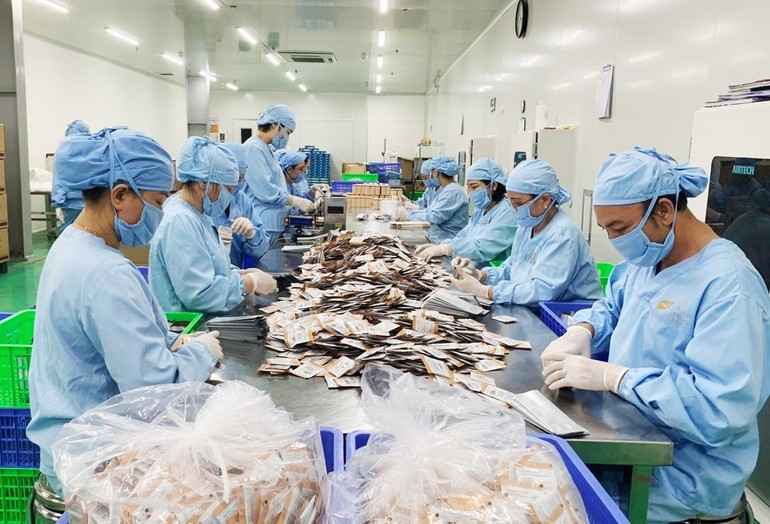
According to the Association of High-Quality Vietnamese Goods Enterprises, as many as 59% of consumers in 2024 were willing to choose green products, showing that this trend is spreading strongly.
On September 23, the Trade Promotion Agency (Ministry of Industry and Trade) signed a memorandum of understanding with Hi1 Viet Nam JSC to develop the F2C–Factory To Customer model, which delivers products directly from factories and production facilities to end consumers. This model will promote green enterprises in bringing sustainable products with reasonable prices to the “Made in Vietnam” e-commerce platform.
Previously, on July 1, the Green Trade Forum 2025, organised by Sai Gon Giai Phong Newspaper in coordination with the Ho Chi Minh City People’s Committee and Arobid Company, marked the launch of the EcoHub green B2B exchange platform along with a 3D digital exhibition titled “No-Carbon City.”
At the forum, Deputy Minister of Industry and Trade Phan Thi Thang affirmed that green e-commerce and digital trade are becoming important pillars of Viet Nam’s green economic development strategy.
According to the Deputy Minister, the National Master Plan for E-Commerce Development for the 2026–2030 period has set the target that by 2030, the proportion of plastic packaging in e-commerce will be reduced to 45%, recycled packaging will reach at least 50%, 40% of logistics enterprises will apply clean energy, and 50% will implement green supply chains.
“The emergence of green e-commerce platforms will help businesses gradually ‘green’ supply chains, meeting the increasingly stringent ESG standards of international markets,” the Deputy Minister stressed.
In reality, e-commerce is not only a potential sales channel but also a tool for spreading a green lifestyle, especially among the younger generation of consumers. Many major brands, such as VinFast and Cocoon, have already chosen e-commerce as a distribution channel for their green and sustainable products. This both affirms enterprises’ efforts and responsibility towards the environment and community and strengthens brand value in the green consumption revolution.
According to Nguyen Phuong Mai of DDA Viet Nam, the biggest difficulty still lies in changing consumer perceptions and habits.
“Organic products are often more expensive, coupled with the problem of counterfeit and poor-quality goods shaking consumer trust. Researching organic extraction technology from by-products also requires significant financial resources and scientific manpower,” Nguyen Phuong Mai shared.
Nevertheless, she believes these challenges serve as motivation for businesses to innovate and cooperate both domestically and internationally, continuing to affirm the value of ‘Purely Vietnamese Organics – Pure Life.’
